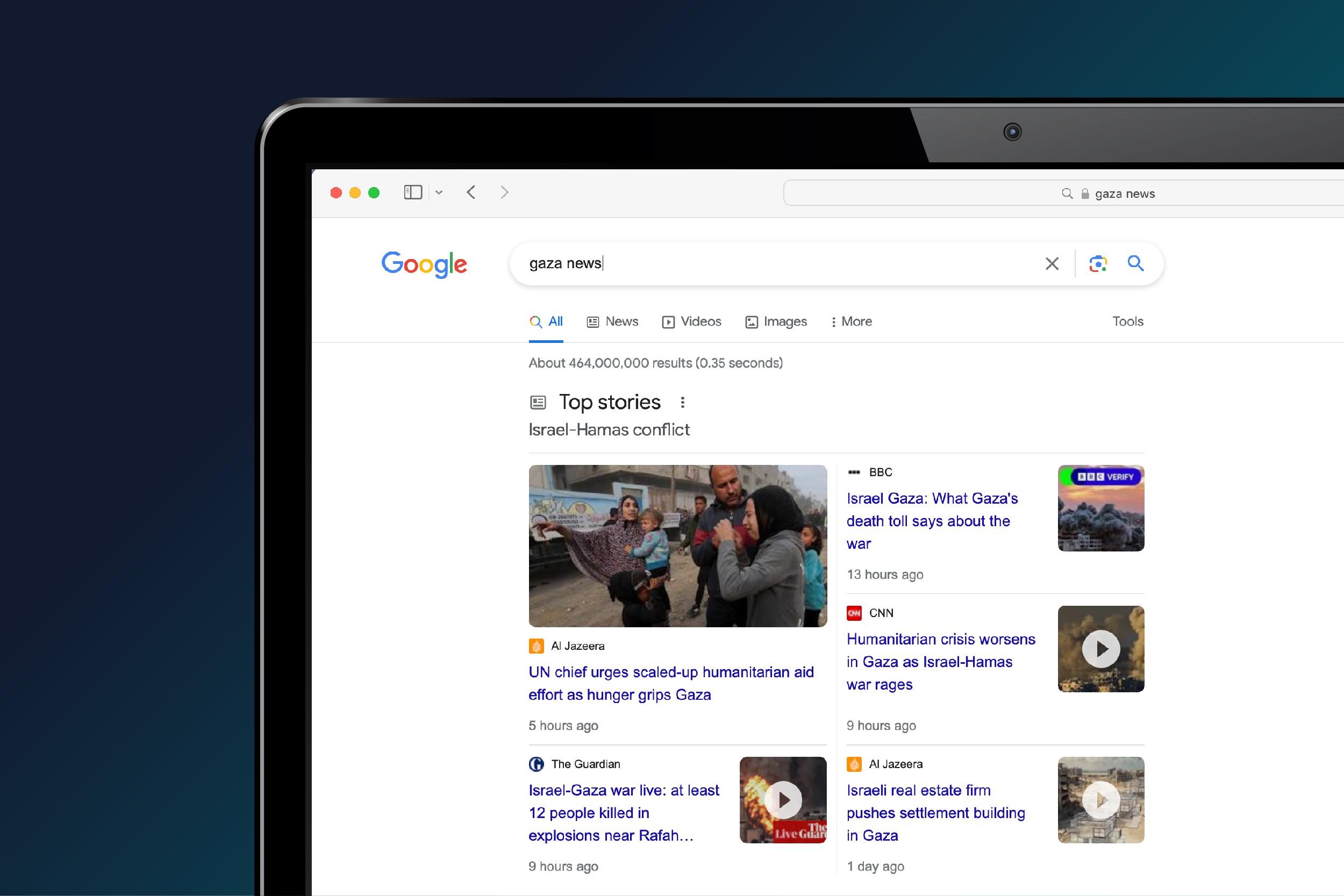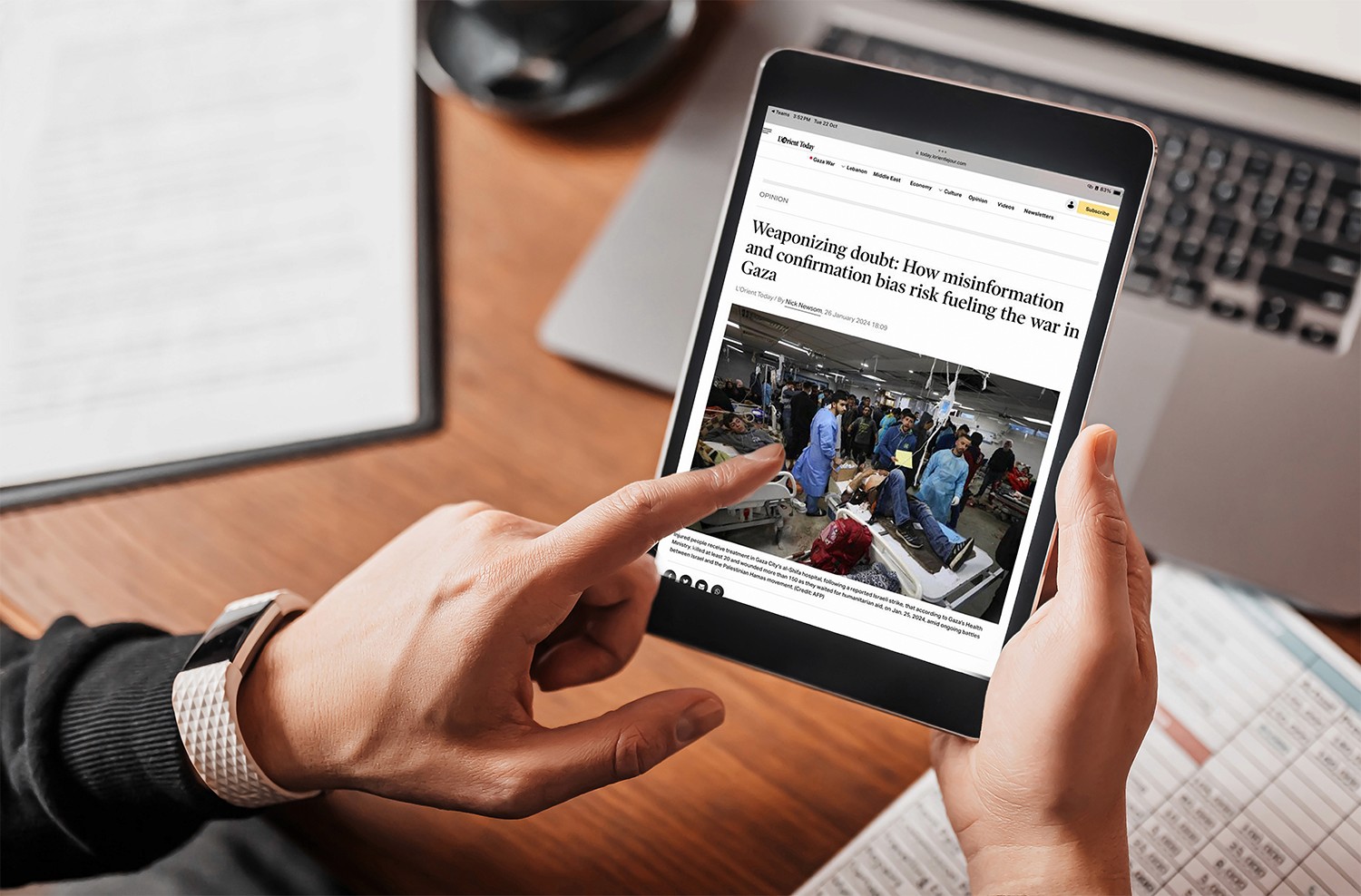War is as much a battle of ideas as it is armed confrontation. As conflicting parties fight it out on the ground, they and their supporters simultaneously battle to control how the conflict is framed and the images, ideas and words used to describe it. This has real consequences on prospects for a just and equitable solution not just to the immediate violence but its root causes as well.
The war in Gaza is no exception. It has been accompanied by an explosion of misinformation and disinformation across platforms and formats. To understand how media consumers in Lebanon are keeping up with and view news of events in Gaza, DALIL carried out a nationwide telephone survey between 3 – 12 November 2023. The survey holds statistical significance at a 95% confidence level, showing a margin of error of ±3%.
The survey found that people in Lebanon are very much following the 24-hour cycle of news coverage of the war. It also revealed significant vulnerabilities to false and harmful narratives about the conflict. These include limited awareness of how to verify claims and where to access fact-checked content, and an apparent tendency to dismiss information that goes against existing beliefs.
Alongside this, news consumers in Lebanon have high levels of trust in media coverage of the war, particularly on social media. This is not in itself a bad thing given the surge in on-the-ground citizen journalism in Gaza, but it adds a layer of vulnerability by diminishing the likelihood extra steps will be taken to verify claims.
The survey points to a continued and heightened importance of investing in media and information literacy training; in bolstering the capabilities of fact-checking organisations in Lebanon and beyond; and in widening public access to news verification tools. It contains a set of recommendations for supporting fact-checking groups so they may grow their audience.










